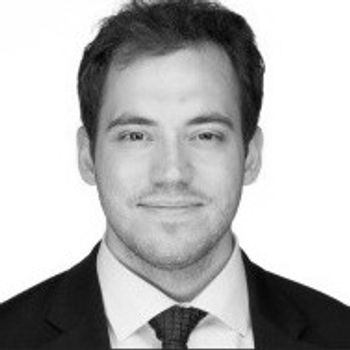Fordham University theology department held book talk on ‘Queer Possibilities of Black Religion’
The book ‘demonstrates the ways in which James Baldwin disidentifies with and queers Black Christian language and theology throughout his literary corpus.’
The author’s work focuses on ‘contemporary theology (particularly Black, womanist, and queer theologies).’
The theology department of Fordham University in New York recently arranged a discussion on the book: “Jimmy’s Faith: James Baldwin, Disidentification, and the Queer Possibilities of Black Religion.”
The theology department’s Racial Justice and Equity Concerns Committee held the event on Feb. 20 with the book’s author, Dr. Christopher Hunt, a religion professor at Colorado College who lists his “preferred pronouns” as “he/him” or “they/them,” The Fordham Ram reported.
The book in question focuses on James Baldwin, a gay black writer and activist. Hunt “demonstrates the ways in which James Baldwin disidentifies with and queers Black Christian language and theology throughout his literary corpus.”
[RELATED: Harvard Divinity School course teaches students about ‘Queering the World’]
Hunt’s book description states that “Baldwin’s vision is one in which queer sexuality signifies the depth of love’s transforming possibilities, the arts serve as the (religious) medium of knitting Black community together, an agnostic and affective mysticism undermines Christian theological discourse, ‘androgyny’ troubles the gender binary, and the Black child signifies the hope for a world made new.”
Hunt was interviewed by Dr. Rufus Burnett of Fordham University, The Fordham Ram reported.
Hunt spoke of how Baldwin, who rejected the teachings of Christianity, “reworked” the symbols of the religion “in this fascinating and beautiful way,” The Ram wrote.
“I think that books like Hunt’s help us to understand what’s at stake at the boundaries of even what we think is the most progressive understanding of faith,” Burnett stated after the event, as the Ram reported.
Hunt told Campus Reform that “Baldwin himself was concerned with commenting on and deconstructing Christian claims. He might have rejected the faith personally, but he understood it’s [sic] power in the Western world and the ways in which Christianity bolstered anti-blackness. Therefore, Baldwin is one of the best figures to engage in taking a critical look at the role of Christianity in phenomena like colonialism, anti-black racism, and cisheteronormativity.”
He added: “Baldwin was not wholly negative toward Christianity. He understood it’s [sic] positive role in movements such as the Civil Rights Movement, and later in life he looked back on his Black Christian upbringing in a much more positive light.”
Hunt’s work revolves strongly around themes of intersectionality, and focuses, among other subjects, on “contemporary theology (particularly Black, womanist, and queer theologies)” and “queer studies to bear in exploring the relationship of religion to varying socio-political phenomena, particularly race, gender, and sexuality.”
Other universities also promote programs and classes that try to impose themes of intersectionality and “queerness” on Christianity and other religions.
[RELATED: Carnegie Mellon ‘Pride Month’ celebration includes lecture by ‘queer, female’ rabbi]
Harvard University’s Office of BGLTQ Student Life, for example, lets students make use of “Queer Spiritual Care,” having “conversations [that] are open to any topic relevant to one’s life and/or spiritual path.”
The University of Southern California is offering a “Queerituality” program run by a “queer chaplain” and “gaymer,” which allows participants to discuss “such topics as finding the sacred in queerness” and examine “divination practices.”
Campus Reform has reached out to Hunt and Fordham University for comment. This article will be updated accordingly.

